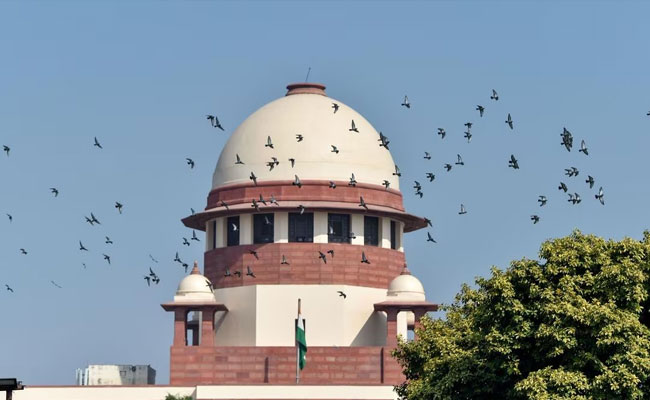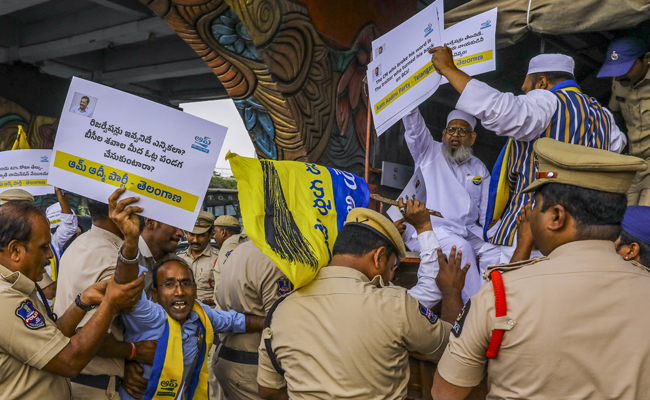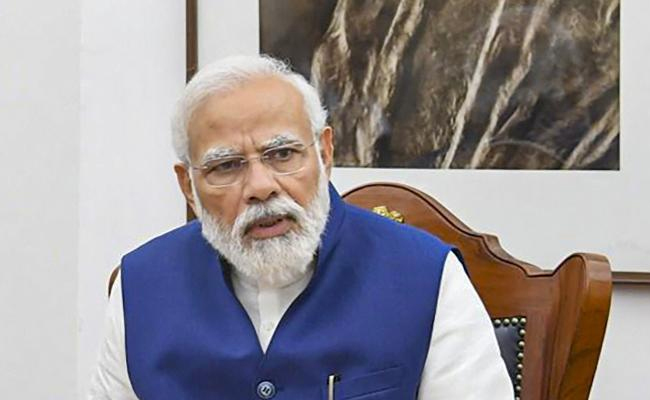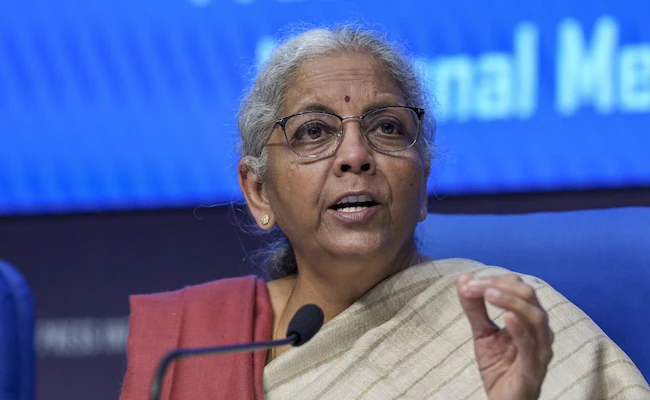New Delhi (PTI): Governors cannot be at liberty to keep bills pending indefinitely without any action, the Supreme Court has said while emphasising that the unelected Head of the State is entrusted with constitutional powers but that cannot be used to thwart the normal course of lawmaking by state legislatures.
Observing that unbridled discretion to the Governor would "virtually veto the functioning of the legislative domain by a duly elected legislature, a bench comprising Chief Justice of India D Y Chandrachud, Justice J B Pardiwala and Justice Manoj Misra said such a course of action would be contrary to fundamental principles of a constitutional democracy based on a Parliamentary pattern of governance.
"The Governor, as an unelected Head of the State, is entrusted with certain constitutional powers. However, this power cannot be used to thwart the normal course of lawmaking by state legislatures.
"Consequently, if the Governor decides to withhold assent under the substantive part of Article 200, the logical course of action is to pursue the course indicated in the first proviso of remitting the bill to the state legislature for reconsideration," the bench said in its November 10 judgment, passed on a plea by the Punjab government.
The bench said if the governor decides to withhold assent to a bill, then he has to return the bill to the legislature for reconsideration.
"If the governor decides to withhold assent under the substantive part of Article 200, the logical course of action is to pursue the course indicated in the first proviso of remitting the bill to the state legislature for reconsideration.
"In other words, the power to withhold assent under the substantive part of Article 200 must be read together with the consequential course of action to be adopted," it said.
The top court said federalism and democracy, both parts of the basic structure, are inseparable.
"When one feature is diluted it puts the other in peril. The tuning fork of democracy and federalism is vital to the realisation of the fundamental freedoms and aspirations of our citizens. Whenever one prong of the tuning fork is harmed, it damages the apparatus of constitutional governance," it said.
The apex court directed Punjab Governor Banwarilal Purohit to decide on the Bills passed by the legislative assembly during its "constitutionally valid" session held on June 19 and 20, saying the governor's power cannot be used to "thwart the normal course of lawmaking".
The top court, in its November 10 judgement which was uploaded on Thursday night, decided on the plea of the AAP government in Punjab which alleged the governor was not granting his assent to four bills which were passed by the assembly.
The Punjab government had also sought a judicial declaration that the assembly session held on June 19 and 20 was "legal and that the business transacted by the House is valid".
The apex court held the assembly sessions were valid and this aspect was not open to the governor after the Speaker took the decision.
"We are of the view that there is no valid constitutional basis to cast doubt on the validity of the session of the Vidhan Sabha which was held on June 19, 2023, June 20, 2023, and October 20, 2023.
"Any attempt to cast doubt on the session of the legislature would be replete with grave perils to democracy. The speaker who has been recognised to be a guardian of the privileges of the House and the constitutionally recognised authority who represents the House, was acting well within his jurisdiction in adjourning the House sine die," the CJI, who wrote the judgement for the bench, said.
Casting doubt on the validity of the session of the House is not a constitutional option open to the governor, it said, adding the legislative assembly comprises duly elected MLAs and is governed by the decisions taken by the speaker.
"We are, therefore, of the view that the Governor of Punjab must now proceed to take a decision on the Bills which have been submitted for assent on the basis that the sitting of the House which was conducted on 19 June 2023, 20 June 2023, and 20 October 2023, was constitutionally valid," it said.
The top court also clarified that it has not expressed any opinion regarding the manner in which the governor will exercise his jurisdiction on the bills in question presented to him.
"In a Parliamentary form of democracy, real power vests in the elected representatives of the people. The governments, both in the states and at the Centre consist of members of the State Legislature, and, as the case may be, Parliament.
"Members of the government in a Cabinet form of government are accountable to and subject to scrutiny by the legislature. The Governor as an appointee of the President is the titular head of State," the judgement said.
Purohit is locked in a running feud with the Aam Aadmi Party (AAP) government in Punjab led by Chief Minister Bhagwant Mann.
On November 1, Purohit gave his approval to two of the three bills sent to him, days after he wrote to Mann saying he would examine all proposed laws on their merit before allowing them to be tabled in the assembly.
The governor's approval is needed to table money bills in the House. Purohit has approved the Punjab Goods and Services Tax (Amendment) Bill, 2023 and the Indian Stamp (Punjab Amendment) Bill, 2023.
Four other bills -- the Sikh Gurdwaras (Amendment) Bill, 2023, the Punjab Universities Laws (Amendment) Bill, 2023, the Punjab Police (Amendment) Bill, 2023 and the Punjab Affiliated Colleges (Security of Service) Amendment Bill, 2023 -- are awaiting the governor's assent.
These bills were passed during the June 19-20 session of the Punjab Assembly.
The governor had termed such an extended session as "patently illegal".
Let the Truth be known. If you read VB and like VB, please be a VB Supporter and Help us deliver the Truth to one and all.
Hyderabad (PTI): The Telangana Commission for Backward Classes on Monday sought reports from state government officials on the death of an infant following alleged assault and caste abuse against her family members in Nagarkurnool district while visiting a temple fair.
In separate letters, Commission Chairman G Niranjan urged Endowments Department Commissioner S Harish and Nagarkurnool district Collector Badavath Santhosh to furnish the reports within three days.
Niranjan drew the officials' attention to media reports on the death of the two-month-old baby at Kummera village in the district and alleged caste discrimination and denial of entry to the temple fair to the baby's family belonging to a BC community.
BJP OBC Morcha's state unit president G Anand Goud alleged inadequate response by the police in the incident and demanded a transparent investigation into the incident.
Alleging that the deceased baby's father was attacked in the incident, he also demanded action against the attackers.
Goud told reporters that BJP's state unit president N Ramachander Rao would visit the village on February 24 and meet the baby's family members.
Meanwhile, a BRS delegation met DGP B Shivadhar Reddy and demanded a comprehensive inquiry into the incident.
The BRS leaders sought action against a person who allegedly attacked the infant's parents.
BC associations have held protests over the past few days regarding the alleged caste discrimination against the deceased infant's family members.
Police said on Sunday that four persons were arrested in connection with the cases registered after the family alleged that the baby died following an "assault" by a group of villagers. The family also alleged that they were abused in the name of caste in the incident on February 18.
However, a villager, part of the group, lodged a counter-complaint with the police the same day, alleging that he was attacked with stones during a scuffle with the family, sustaining a head injury, following which a case was registered.
The infant died on February 21 and her mother, who belongs to an SC community, also lodged a complaint alleging her daughter died due to the physical assault on the family by some villagers, police said.





